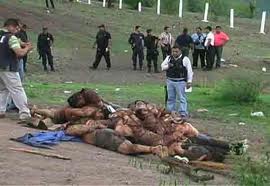
Winning the War in Afghanistan at $50 Million per Kill
Fun With Arithmetic
By NICHOLAS C. ARGUIMBAU
CounterPunch 28/10/10
Michael Nasuti of Kabul Press recently published an article in which he calculated that killing each Taliban soldier in Afghanistan costs on average of $50 million to the US. The article, seemingly carefully. researched with all assumptions laid out so that anyone can examine them, is well worth reading. Nasuti, “Killing Each Taliban Soldier Costs $50 million.” He points out that at this rate, killing the entire Taliban forces (only 35,000) would cost $1.7 trillion, not a small amount for a country suffering from a severe economic downturn to spend on a war with no apparent purpose. And Nasuti's number, of course, assumes that they coud not be replaced faster than they are killed, but it appears that they can, easily.
Nasuti, who actually uses a “conservative” number (assuming that he has undercounted the number of Taliban casualties by one half), states that he had previously served “at a senior level” in the United States Air Force. He says,
The reason for these exorbitant costs is that United States has the world’s most mechanized, computerized, weaponized and synchronized military, not to mention the most pampered (at least at Forward Operating Bases). An estimated 150,000 civilian contractors support, protect, feed and cater to the American personnel in Afghanistan . . . The ponderous American war machine is a logistics nightmare and a maintenance train wreck.





